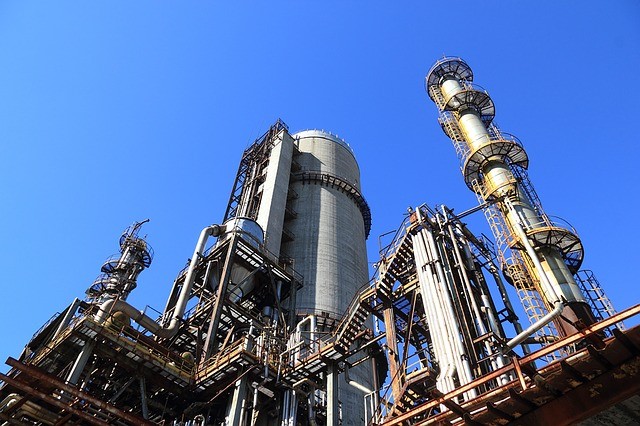The Industry Applications of an Industrial Pinch Valve
03-17-25

In the complex world of industrial fluid control, efficiency and reliability are paramount concerns for operations managers and engineers alike. Among the many valve options available today, the industrial pinch valve stands out as a versatile solution for challenging applications across numerous sectors. This straightforward yet highly effective valve type has become increasingly essential in modern industrial processes where reliability and minimal maintenance are critical factors.
What is an Industrial Pinch Valve?
An industrial pinch valve operates on a remarkably simple principle: a flexible tube or sleeve is “pinched” by a mechanism that restricts or stops flow. This design eliminates the need for complex internal components that might come into contact with the media flowing through the valve. The result is a valve that offers exceptional durability and resistance to abrasive, corrosive, or viscous materials that would quickly damage or compromise other valve types.
Key Advantages of Industrial Pinch Valves
The growing popularity of industrial pinch valves across various sectors stems from several distinct advantages:
- Complete Media Isolation: The pinch mechanism never contacts the flowing media, making these valves ideal for handling corrosive, abrasive, or sterile substances.
- Minimal Maintenance Requirements: With fewer moving parts and no seals exposed to the process media, maintenance needs are significantly reduced compared to traditional valve designs.
- Superior Handling of Slurries and Particulates: The full-bore design allows solid materials to pass through without causing damage or blockages.
- Excellent Throttling Capabilities: Industrial pinch valves provide precise flow control, making them suitable for applications requiring variable flow rates.
- Cost-Effective Operation: Their simple design and low maintenance requirements translate to reduced downtime and lower operational costs over the valve’s lifecycle.
Industry Applications
Mining and Mineral Processing
The mining industry presents some of the most challenging conditions for valve operation. Industrial pinch valves excel in this environment, handling abrasive slurries containing hard mineral particles that would quickly erode other valve types. Their ability to manage high-solid content fluids makes them invaluable in processes such as:
- Tailings transportation
- Mineral separation circuits
- Acid leaching processes
- Filter press feed systems
Water and Wastewater Treatment
In water treatment facilities, reliability and consistent performance are essential. Industrial pinch valves effectively handle:
- Chemical dosing systems
- Sludge processing
- Pump isolation
- Filtration processes
The valve’s full-bore design prevents buildup of biofilms and other contaminants that might compromise water quality or treatment efficiency.
Chemical Processing
The chemical industry requires valves capable of handling corrosive media without deterioration. Industrial pinch valves provide:
- Complete isolation between the actuation mechanism and process chemicals
- Resistance to aggressive substances that would damage metal components
- Reliable operation in batch processing where frequent cycling is required
- Compatibility with a wide range of chemical compounds
Food and Beverage Production
Hygiene and contamination prevention are paramount in food processing. Industrial pinch valves offer:
- Easy cleaning and sanitization
- No crevices where product can accumulate
- Compliance with food safety standards
- Gentle handling of delicate food products
Pharmaceutical Manufacturing
In pharmaceutical applications, sterility and precision are non-negotiable requirements. Industrial pinch valves provide:
- Validated sterile operation
- Precise control for critical processes
- Easy cleaning and sterilization
- Reliable performance in clean room environments
Pulp and Paper Production
The pulp and paper industry deals with highly abrasive slurries and chemicals. Industrial pinch valves excel in:
- Stock preparation systems
- Chemical addition processes
- Bleaching operations
- Waste handling systems
Selection Considerations for Industrial Pinch Valves
When selecting an industrial pinch valve for a specific application, several factors should be carefully evaluated:
- Sleeve Material Compatibility: The elastomeric sleeve must be compatible with the process media to ensure longevity and prevent contamination.
- Operating Pressure and Temperature: Each sleeve material has specific pressure and temperature limitations that must align with process conditions.
- Actuation Method: Options include manual, pneumatic, hydraulic, and electric actuation, each suited to different operational requirements.
- Cycle Frequency: Applications requiring frequent opening and closing may need specially designed sleeves to withstand repeated flexing.
- Installation Space: The valve’s dimensions and actuation mechanism must fit within the available space constraints.
The Future of Industrial Pinch Valves
As industries continue to seek more efficient, reliable, and maintenance-friendly solutions, industrial pinch valves are likely to see increased adoption. Ongoing developments in elastomer technology are expanding the range of compatible media and operating conditions, further enhancing the valve’s versatility.
Additionally, integration with digital control systems and the Industrial Internet of Things (IIoT) is enabling more precise control and predictive maintenance capabilities for these valves, aligning with broader industry trends toward automation and data-driven operations.
Contact Everlasting Valve today to discuss your project requirements.